The top online banks provide a good balance of high APYs, low fees, and reasonable minimum requirements.
We have analyzed the offerings from countless online banks that are available nationwide to identify some of the best choices out there.
Below, you can find detailed information about why we selected each institution, the advantages and disadvantages they offer, and access to individual bank reviews.
Best Online Banks of October 2023
Here are the best online banks that you can open an account with today:
American Express National Bank: Best Overall
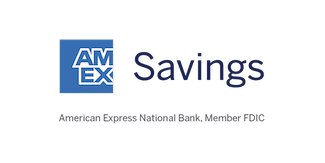
American Express® High Yield Savings Account (Member FDIC) offers 4.30% APY (as of October 10, 2023), no fees, multiple CDs, and 24/7 customer service.
Features
Extensive, Convenient, 24/7 Support

Alliant Credit Union: Best Credit Union
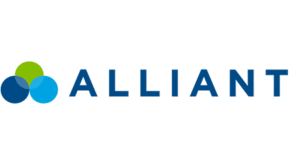
Alliant Credit Union offers an ideal mix of high yields on savings products, diverse account types, 80,000 in-network ATMs, few fees, and robust mobile banking.
High-Rate Savings
3.10% APY¹
Features
Convenient, Fee-Free, Accessible, ATMs,
Specialized accounts
Kids Savings, Teen Checking, Mobile app

CIT Bank: Best for High Yields
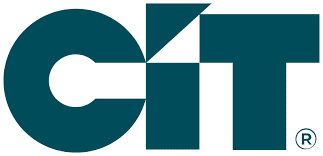
High yields, no fees. Savings Connect 4.65% APY, Platinum Savings up to 5.05% APY, Savings Builder up to 1.00% APY. No ATM fees, $30 reimbursement.
Savings Connect
4.65% APY
Platinum Savings
Up to 5.05% APY
Savings Builder
1.00% APY

Albert: Best for Customer Support

Albert is a financial app for spending, saving and investing. It stands out for expert-level customer service and support while offering value-adds like up to 20% cash back and competitive interest on eligible balances.
Features
Financial app for spending, saving & investing
Accounts
Albert Cash, Albert Savings, Albert Investing

GO2bank: Best for Debit Card Rewards
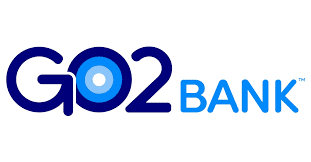
GO2Bank is a low-friction online bank that charges no monthly fee with direct deposit and pays up to 7% cash back on eGift card purchases.
Features
Low-friction online bank with mobile-friendly account
Cash Back
Earn up to 7% cash back on eligible gift card purchases in the app

Douugh: Best for Automated Budgeting
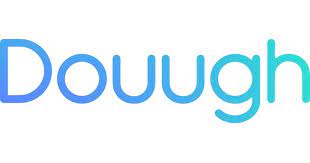
Douugh is an AI-powered app for automated income allocation, budgeting, and savings, with additional banking features.
AI Enabled
AI automates income and savings
User-Friendly
Dashboard simplifies financial management
Other
Offers comprehensive banking features

Copper Banking: Best for Teens and Young People

Copper offers teen-friendly banking with parental controls, automatic saving, and financial education.
Teen-Friendly Banking
Personalized banking for teens
Parental Controls
Parental monitoring and fund transfers
Financial Education
Comprehensive financial education resources

Quontic: Best for Savers
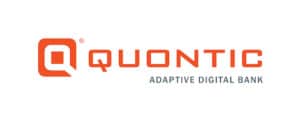
Quontic Bank offers diverse, fee-free, high-yield banking options and innovative features nationwide.
High-Yield Accounts
High-yield checking and savings
Innovative Features
Wearable Quontic Pay Ring feature
Inclusive Lending
Diverse, inclusive home loan options

Lili: Best for Freelancers and Self-Employed People
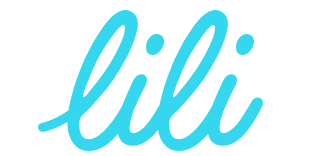
Lili offers a free, feature-rich checking solution designed for freelancers and side hustlers.
Freelancer-Focused Banking
Free checking for freelancers, solopreneurs
Automated Tax and Expense Tools
Automated tax, expense management tools
Additional Perks
Additional perks, no minimum balance

Discover Bank: Best for Borrowers
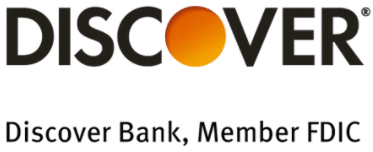
Discover Bank offers diverse deposit accounts, credit products, and customer-friendly features online.
Diverse Deposit Accounts
Wide range of deposit accounts
Comprehensive Credit Products
Comprehensive secured, unsecured credit products
Customer-Friendly Features
Convenient features and customer support

Methodology: How We Select the Best Online Banks
We use several key factors to evaluate online banks and surface the very best ones for our readers. Each relates in some way to the overall user experience, and you’ll see many represented in our “Best For” categories above.
Available Account Types
The best online banks offer a range of different deposit account types: free checking, savings, CD, and money market accounts, among many others.
Truly comprehensive online banks go even further, with less-common account offerings like savings IRAs, jumbo CDs, and more. More accounts doesn’t necessarily mean a better banking experience, but it’s helpful if you’re looking for a one-stop financial shop.
Interest Rates
Online banks tend to have higher yields — interest rates paid to the account holder — as well as lower interest rates on certain types of loans, if offered.
You shouldn’t count on that though. It’s important to shop around and choose an online bank that consistently offers significantly better rates. Not all do.
Account Minimums
The best online banks have low or no minimum balances and low or no minimum opening deposit requirements on checking, savings, and money market accounts.
CDs generally do have minimum deposit requirements, even at the best online banks, but there’s lots of variation. Look for deposits at or below the $1,000 mark, if possible.
Monthly Maintenance Fees
Free is always better than not free, right?
Not necessarily. Some of the best online banks around charge modest monthly fees. In exchange, they offer a wealth of value-added features and services that can earn or save you money (and sometimes both at the same time).
That said, we do give preference to banks that don’t charge monthly fees at all. Because everyone could use a break.
Other Account Fees
The trusty monthly maintenance fee is just the most visible bank fee. Others include:
- ATM fees (in-network and out-of-network)
- Wire transfer fees
- Excess transaction fees
- Early withdrawal penalties
- Minimum balance fees
Traditional banks are notorious for nickel-and-diming their customers. By contrast, most online banks do charge at least some fees, but they’re predictable and clearly disclosed on their websites and applications.
For example, many online bank CDs come with early withdrawal penalties. These can be equivalent to as little as one month’s interest on shorter-term CDs but may range up to 24 months of interest on very long-term CDs.
All else being equal, we prefer online banks that charge few if any fees — and hidden fees are a dealbreaker.
Investment and Tax-Advantaged Options
Many online banks stick to core banking services, like checking and savings. But a growing number of online banks offer a wider array of options for people who’d like to be able to do all their banking in the same place.
We’re particularly fond of online banks that offer tax-advantaged account options, such as savings IRAs and CD IRAs. We also like online banks that have in-house investment platforms — whether they’re self-directed brokerages like Ally Invest or low-cost robo-advisors like Wealthfront.
Credit Options
All online banks have at least one deposit account product. That’s what makes them online banks.
A smaller but growing number make loans or issue lines of credit — including credit cards — as well. Common online bank credit products include:
- Mortgage loans, including purchase loans and refinance loans
- Home equity products, including home equity loans and lines of credit
- Auto loans
- Student loans and student loan refinancing products
- Personal loans
- Credit cards and other types of credit lines
We don’t hold it against online banks that don’t make loans — it’s a big step for many a lean bank. But we do look out for banks that have taken the leap.
Budgeting and Money Management Features
Budgeting is hard to do right. That’s why we’re big fans of online banks with built-in budgeting and money management tools.
The more automated these tools are, the better. In fact, some make our list of the top budgeting apps on the market. Truly “set it and forget it” money management saves the typical consumer hundreds if not thousands of dollars per year.
Online Banking FAQs
Still have questions about online banks and managing money online? We have answers.
How Much Does Online Banking Cost?
Online bank rates, yields, and fees are subject to change at banks’ sole discretion. For up-to-date information about specific accounts and bank policies, check their websites or call customer service.
That said, online banks are generally more affordable than traditional banks. They’re less likely to charge monthly maintenance fees on checking and savings accounts, and many have fewer hidden fees too.
What’s the Interest Rate on an Online Bank Account?
That also depends on the individual bank. But many online accounts feature higher yields relative to those of traditional banks.
That’s because online banks have less overhead than traditional banks. They don’t need to pay to keep big, centrally located branches open or pay people to work at them. Their operations are more efficient, which allows them to pass the savings on to customers via higher rates and lower fees.
How Do You Enroll in Online Banking?
It depends on the bank and how its website or app is structured, but it’s usually straightforward. In fact, with an online-only bank, enrollment is usually automatic. You don’t have to complete a separate application or even click a button to activate your account.
However, you will need to create a unique username and password to get started. You may be asked to do this as part of the initial application process or once your account is approved. You’ll also need to link at least one external funding source to transfer money into your account.
Can You Get a Mortgage From an Online Bank?
Some online banks offer home loans (mortgages) and other credit products. These banks tend to be larger online banks with high name recognition, like Ally Bank and Capital One Bank. Look for a “Mortgages” or “Home Loans” tab on the homepage or in your account dashboard.
Be aware that some online banks outsource mortgage origination to other companies. In other words, if you apply for a mortgage through your bank, your loan officer might actually work for someone else. This isn’t necessarily a bad thing, but it could mean a different level or style of service than you’re used to.
And don’t expect your online bank to offer better mortgage rates than other lenders. The mortgage loan business is highly competitive, and direct lenders with even lower overhead may be able to undercut online banks.
How to Choose the Best Online Bank
The institutions on this list offer a great combination of FDIC-insured banking products, solid yields, open access, and helpful customer service.
Before choosing one, take a closer look at the features that set it apart from the competition: rewards checking, flexible withdrawal terms for CDs, particularly high account yields, a socially responsible corporate philosophy, and so on.
And remember that, unlike in the old days, your banking choices aren’t bound by geography or other restrictions. If you can’t settle on a single online bank, why not open accounts at multiple banks and compare your experiences?
